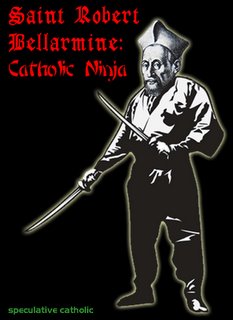The Change, Eight Years After.
[Obligatory Full Disclosure Notice Here. And no, I'm not going to tell you anything about AMAC.]
The Protector's War is the second installment in the first trilogy set in the Change universe. For details on what the Change involves, go here. By 2006, the population of the Earth has started to recover from the catastrophic dieoffs (somewhere in the neighborhood of 98%) of the first Change Year. The fledgling Oregon survivor bands (good and ill) seen in DTF have shaken out and formed into something resembling nation-states of their own. What's more, we get a "what" of the Change, if not the "who" or "why." Essentially, mother Earth has been targeted with very precise changes [rimshot!] in the way certain gasses behave and the way molecules "glue" together--bottom line, the energy from compressed gasses is but a fraction of what it was before the Change. The same appears to have happened with electrical voltages, and something similar with fission reactions. The effect is, bye-bye engines that rely upon the compression of gasses--internal combustion, firearms, etc. If it's not human-, animal- or hydraulically-powered, it doesn't work.
We also get a glimpse at the state of the rest of the world: pretty much totalled, with the exception of Tasmania, New Zealand's South Island (which both managed to survive unscathed), the island redoubts of Britain (Wight, Man, Anglesey, the Hebrides), northern Scandinavia, the deep interiors of the Americas, Europe, Africa and Asia, along with a few isolated, remote, or improbably lucky regions. And nothing--nothing--else, as it is explained that the rule of thumb is that everyone within 100 miles of a major metropolitan area either fled quickly or died. Assuming that flight was possible, of course. The description of the grisly discoveries by explorers probing into the salt flats surrounding the necropolis of Los Angeles is chilling.
Continuing the focus of the first book, we get a detailed look at three of the Williamette states: Clan Mackenzie, Mike Havel's Bearkillers, and the dread Portland Protective Association, the last a weird fusion of gangbangers, the Society for Creative Anachronism and the Inquisition into a very dark Norman kingdom. Actually, check that--by our standards, they're all "weird." But thriving, if in very different ways. By Change Year 9, a stalemate of sorts has developed between the PPA and "Free Oregon."
(1) Juniper Mackenzie, erstwhile gifted busker, current Wiccan high priestess and reluctant chief of state, has managed to deftly herd 20000+ cats into a successful agricultural power, one very handy with the longbow. If anything, the book is Mackenzie-centric, focusing more on Juniper and her unruly, if capable and good-natured, Clan. Mackenzie remains the most likeable of the characters, one whose practical moral groundedness is only matched by her mysticism. The mysticism (even if it's hardly mine) is one thing I appreciated, in that it dispels the idea that mystics are invariably feverish, unblinking and detached souls. Not so. Anyone who thinks that needs to get acquainted with St. Teresa ("God save me from gloomy 'saints'!") d' Avila, whose connection to the Almighty was so close she felt comfortable with carping at Him for letting her get tossed into a creek by her horse.
Again--to make it clear to the peanut gallery--I find Wicca unpersuasive at a number of levels. But the depictions are fascinating, and, especially in the dedication of Sutterdown, truly "other" and even unnervingly alien. If I have one gripe about Juney's character, it's that she tends to be non-interventionist when it comes to her people pursuing paths she recognizes as destructive. Perhaps Wicca doesn't have quite the same "brother's keeper" angle as Christianity, but still. Overall, though, the Mackenzies remain perhaps the most attractive of the societies depicted so far. While increasingly and overwhelmingly Wiccan, they are democratic and genuinely tolerant, as is seen in the treatment of a Catholic refugee family in the book.
(2) Then there's the Bearkillers. Dear reader, my question is this: Is Mike Havel an Arminger with a conscience? It is clear from the book that the Bearkillers are the only Williamette state that engenders real respect from the lords of the Protectorate, who go so far as to address their Bearkiller opposites with the term "Lord." The BKs and the PPA resemble each other in ways too close for comfort, with the essential difference being the former possessing a benevolent leadership cadre. The BKs are also doing well, but are starting to bifurcate into a class of lords and everybody else, which, to his credit, worries Havel. But something else is more pressing, namely:
(3) The Portland Protective Association. In the years since Norman Arminger's goons drove most of the desperate population of Portland out of the city to die, the Lord Protector has managed to recreate feudal Norman England, or a SCA revision of the same. A particularly hellish DisneyWorld version, but live-action, as it were. Arminger even has his own anti-pope (though the denizens salute him as the Successor of Peter) and Inquisition installed to keep order. The Sunday obligation is quite mandatory, indeed, in the PPA. We get a longer look at the Protector and his kingdom, as opposed to the briefer treatment in DTF. Interestingly, Arminger has dispensed with some of the outwardly kinky aspects of the early Protectorate, even if he otherwise remains the same dangerously charming and capable sociopath we've come to know and loathe. His even more dangerous wife, Sandra, gets more time as well--also charming, she gives the impression of having been cloned from the DNA of Elizabeth Bathory and Martha Stewart, perhaps with Tamerlane as Dad. Because the PPA cannot abide free states along its long borders, war is inevitable and preparations on all sides are underway.
An increasingly strong focus of the series is on adaptation to the Change, and what kind of mindsets work (or don't). The most striking example is that of Astrid Larsson, who treats Tolkien as the Revealed Word. It would be insane--in certain respects it still is--but it works in the Changed world. What is more insane is to try to live as though the Change never happened--which has broken more than a few of those who have managed to survive. Another intriging example of this are the hints of a gradual morphing of the brutal gangers of the PPA into something much better, and the suggestion that their children will be better still. Even the Armingers seem to have been caught up in their creation, and are as often being carried by it as directing it. It is an interesting process, and one that mirrors the experience of the Nantucketers in the Island series.
Plot-wise, there's plenty of action, as well as the introduction of several new perspective characters, starting with three doughty Englishmen: Sir Nigel Loring, his son Alleyne and "Little John" Hordle, 6'7" of bastard sword-swinging fury. Just the kind of guy you'd like to see taking on Baron Liu's hulking buddy, Mack, in fact. Sir Nigel is an old-school Edwardian and ex-SAS colonel who quickly recognized that the Change wasn't changing back, and recommended fleeing to the defensible islands off Great Britain. It worked, after a fashion, saving upwards of 200,000 British souls. Charles became king, and went a little...eccentric ("bloody barking mad"), and Sir Nigel fell out of favor. Sir Nigel and the other two go into exile, and, through an interesting, er...coincidence...end up in Oregon.
Much rollicking adventure happens, we meet a famous royal personage, villains are battled, the Protector goes to war (if not quite in the way a reader might expect from the title) and the good guys come into possession of a few items of great importance to Mr. Arminger. There is a revelation which changes the dynamic of several relationships, and we are also left at the end with a cliffhanger regarding the fate of two characters. There are also several amusing cultural references, overt and implied, from such diverse sources as Bored of the Rings, The Wicker Man, Blood of Heroes, Lonesome Dove, Dirty Harry and Monty Python, to name but six.
As far as the reading goes, remember two things: (1) It's a middle book. Much is set up and left unresolved, so there's a natural unsatisfied feeling. (2) Check the dates at the beginning of each chapter--they are essential for keeping the plotlines from getting confused, especially where the "flashback" sections begin. One of my few gripes with the book is with keeping the plot strands straight. I understand why it was done that way, and there is a payoff, but it can be difficult to follow at times.
My other essential gripe is that the Catholic characters come across as a little generically Christian--not that they do anything "unCatholic," so to speak, but not distinctively Catholic. That's fixable, though.
Finally, as to the religious angle: Amazon reviewers are a hoot. The whining about "all the Wicca" is a little funny by this point. It's a little like reading, say, James Fenimore Cooper, and asking "What's with all the effin' Indians? It's kinda the idea, guys.
The important thing to remember is that we are seeing only a couple slices of the post-Change Williamette (CM and BK), so to say that Wicca dominates the entire region is, to borrow an Ayl-word, gormless. Wicca dominates the Clan, true, and has made serious inroads into the BKs, but with regard to the latter, so has Catholicism, as is noted in a scene where Mike issues a ruling in a domestic matter. The "founder effect" ensures that the Huttons' religion will be as influential as Astrid's among the Outfit. And, lest we forget, there is a thriving Catholic presence at Mount Angel which is referenced at the early meeting and in spaces throughout the book. So to say that Christianity is in terminal decline is reading into the text something that is not there.
The striking thing, from a religious perspective, is that religion is not an optional thing in the Changed world. There is no spiritual buffet. It is ground into the lives of most of the characters, and, whole and entire, is an essential part of their identities. It is also interesting to note that Wicca is becoming less "spell" and more "prayer," so to speak. Juney's conversations with the divine are not really different in form (as opposed to content) from that which goes on in the head of practicing Christians. At least not from my head--YMMV.
Overall, TPW is a worthy sequel to DTF, and one that leaves the reader primed for the final book of the trilogy.
Take--read.







